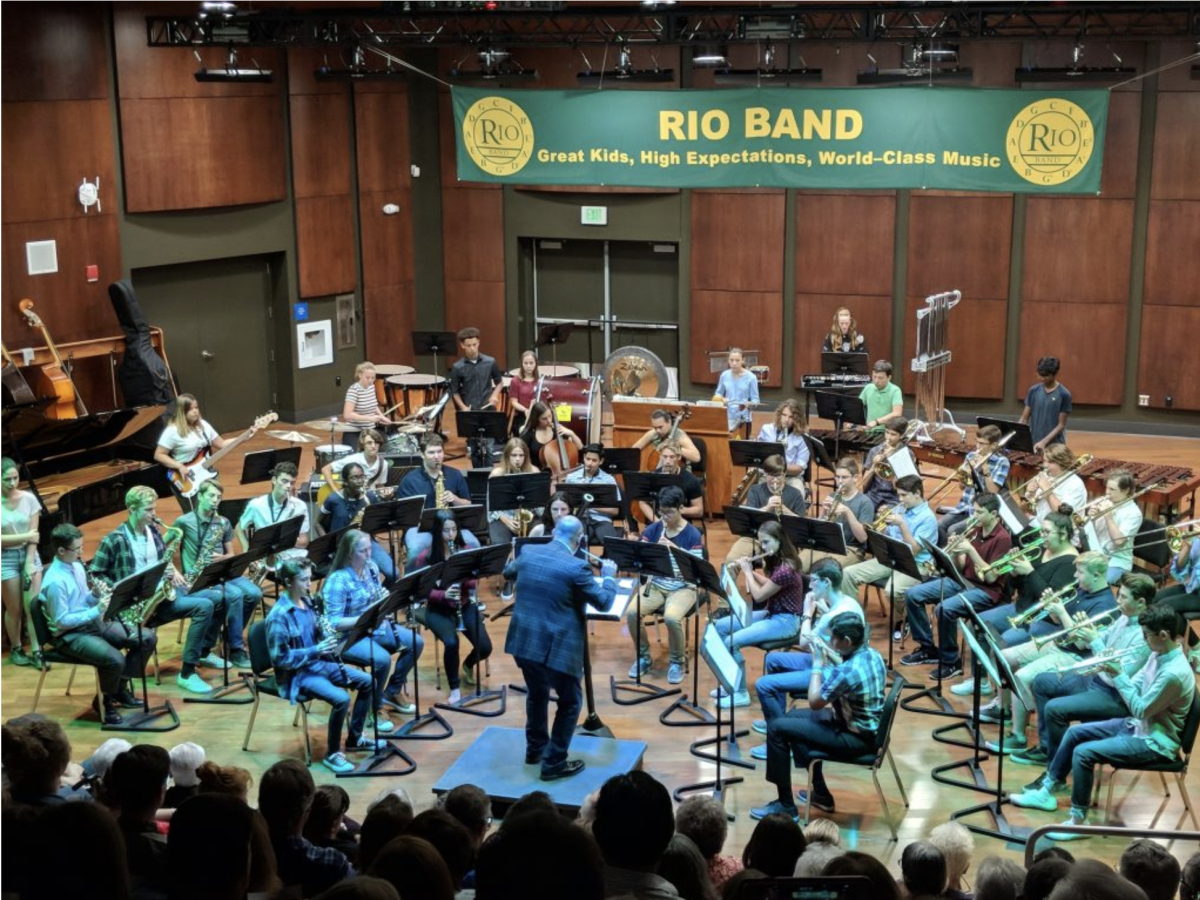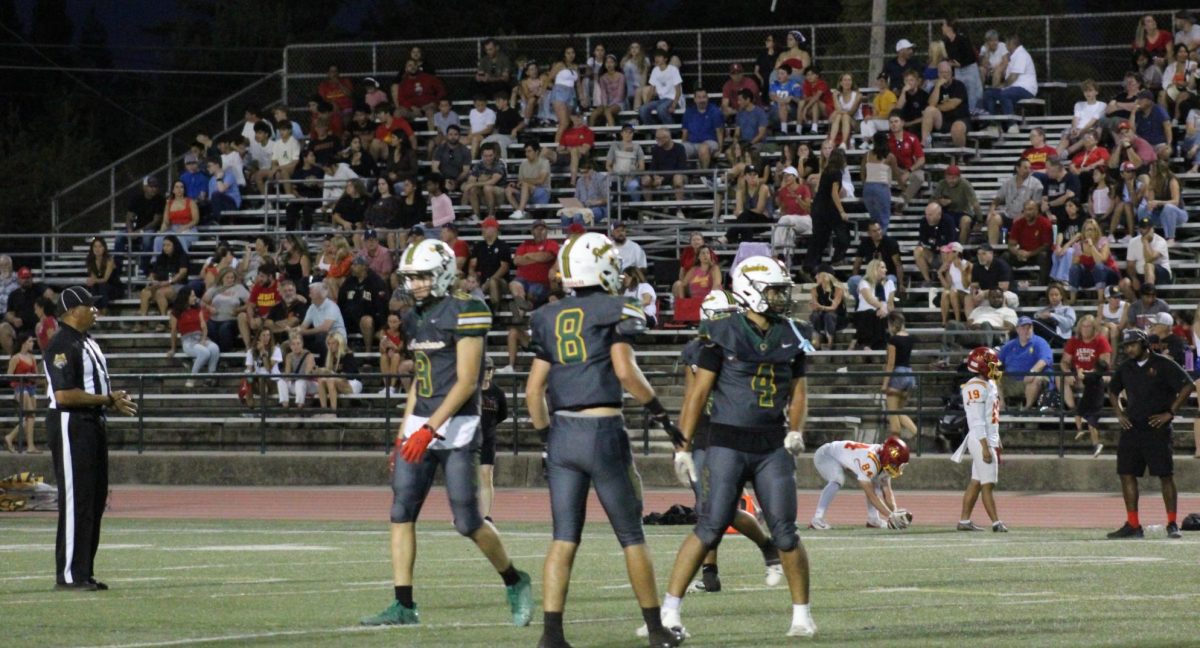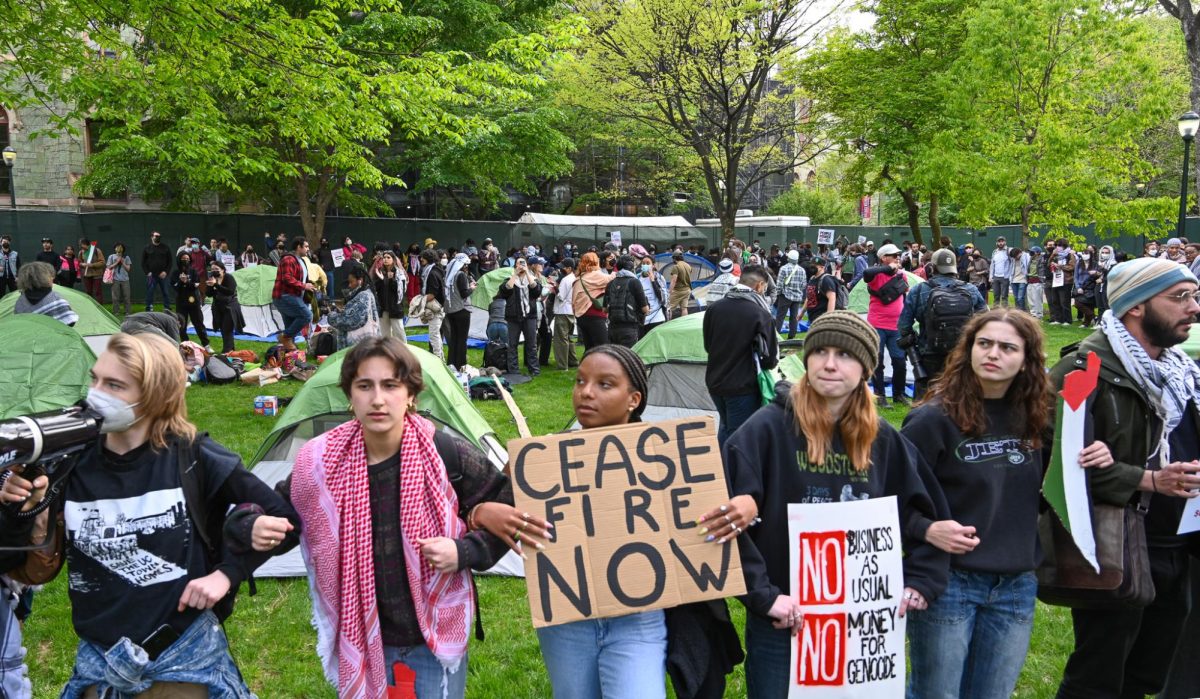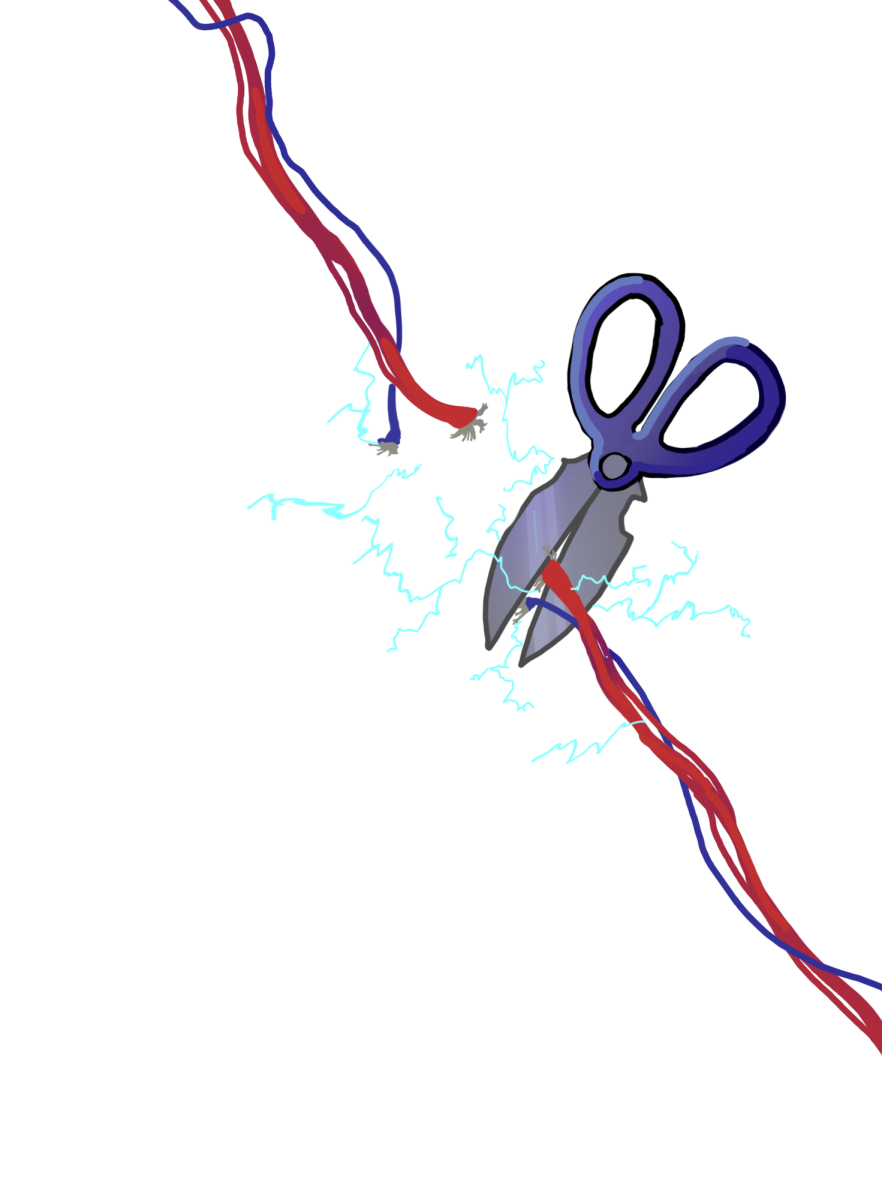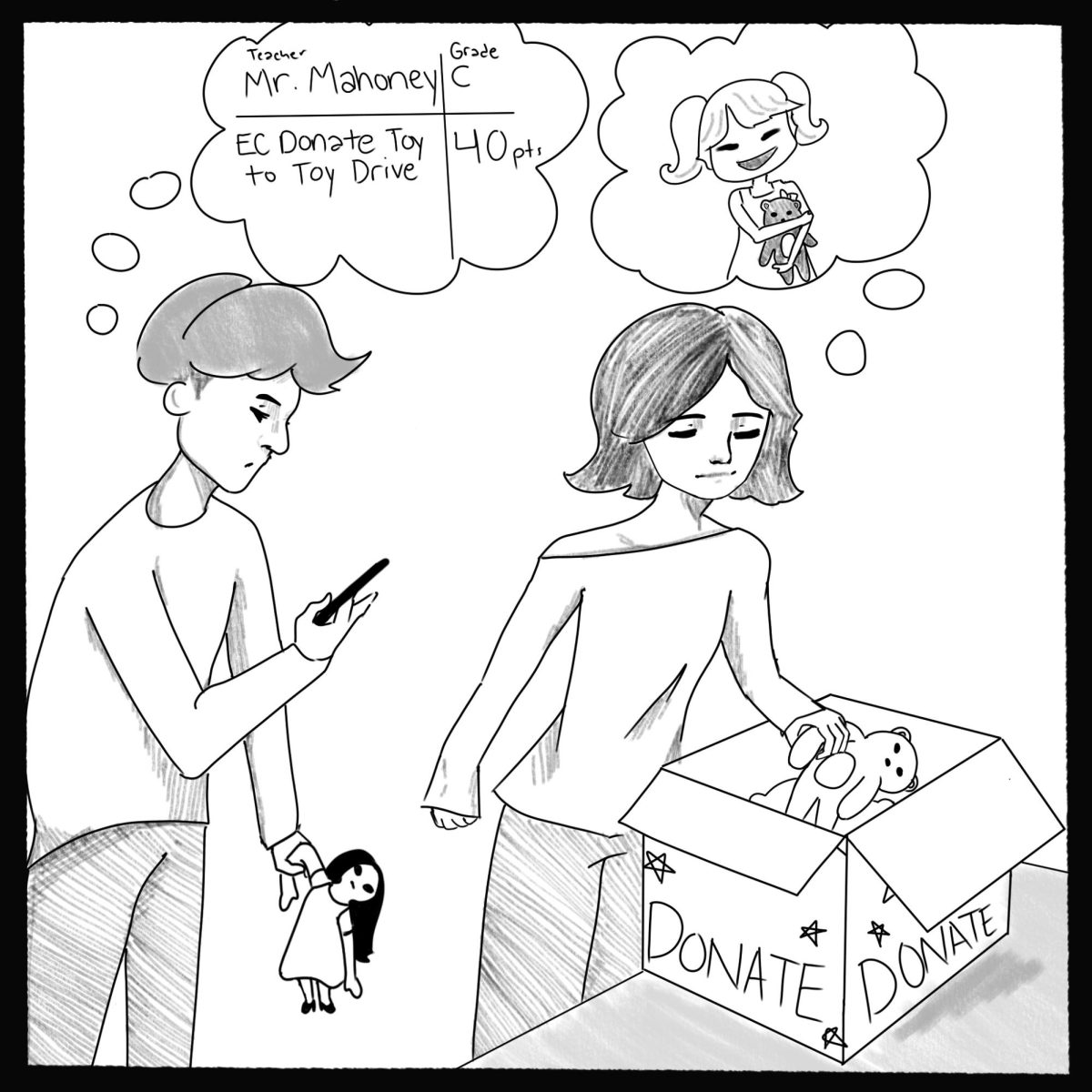Many of my peers may agree that their parents and grandparents constantly berate them for being oblivious to struggle and unable to see past the tip of their noise, or more realistically for phone. To many adults, our hardships and complaints are frivolous. They assume we care more about what’s trending on social media than the state of the world. We are seen as the most pampered generation yet who has no right to complain or protest.
Thus, when reading the comments section of a New York Times article on the recent wave of college protests and encampments, I was not surprised to see many readers hold the same judgements of the young students involved. Student protestors are calling for a ceasefire in Gaza and for their universities to divest funding from Israeli institutions, as well as corporations with ties to the Israeli government.
“You are privileged. Go get your hands dirty.”
“They should really spend time learning about history and politics and facts instead of sitting outside screaming.”
“[Referring to protests during their college years]…we sure as heck did not ruin other students’ ceremonies.”
These comments reflect a flawed criticism of the brave stance student protests are taking against the actions of their universities in the larger scope of the Palestinian cause. While many believe that the current encampments on college campuses are an inappropriate display and proof of Gen Z’s deluded entitlement, they are in fact a testament to the youth’s courage and conscientiousness.
Students at universities across the U.S. have been demonstrating in support of the Boycott, Divest, and Sanction (BDS) movement that advocates for cutting off funding from the Israeli government and Israel Defense Forces (IDF), the country’s military wing. According to their website, the country is occupying Palestinian land and discriminating against the Palestinian people.
Israel’s current war on Hamas in the Gaza strip, a response to Hamas’ October attack on Israel that killed more than 1,200 people, has resulted in more than 35,000 casualties, per the health ministry in Gaza, many of whom are women and children.
The goal of academic boycotts and student solidarity is to peacefully disrupt the status quo and pressure institutions, mainly their universities, to divest funding that reaches Israel and bring attention to the Palestinian cause.
However, many who criticize the student protestors, such as the commenters in The New York Times, seem to be misinterpreting these movements. Students are very well aware of their privilege, as am I. I understand that instead of mourning the loss of my home and family, and trying to survive until the next day like young people in Gaza, I am writing this piece criticizing the opinions of middle-aged Times readers from the safety of my home.
Those who are bravely participating in college encampments are using their privilege for a good cause and giving a voice to those who do not have one.
Additionally, there is nothing “performative” about these protests, especially given the responses they are eliciting. Universities such as Brown, Northwestern, the University of Minnesota, and Evergreen State College have all brokered deals with student protests to take down encampments and negotiate their demands. Evergreen State College made history by becoming the first university in the U.S. to fully divest from Israel.
While these are only a few schools out of the dozens that have protests on their campuses, it demonstrates to other university administrations and student protestors that their actions are in fact powerful, not performative, and successful in their goals, too.
“This is not a performative movement that settles for symbolic gestures or empty sloganeering,” a BDS statement said. “It has strategic demands, most importantly ending the complicity of academic institutions in Israel’s genocide.”
History and politics are also driving factors in the current movement, despite what some adults may believe.
Also, to assume that a classroom is the only place where learning can occur on a university campus is to diminish the value of higher education. Supressing student voices by claiming the only place for them to express their ideas and opinions is in a classroom is counterintuitive to teaching them about real-world issues and allowing them to think critically for themselves—a skill that many learn during this formative period.
Today’s pro-Palestinian movement is not, by nature, self-contained, as past protests that have occurred on college campuses are becoming more and more relevant in our current conversations. During their time at Cornell University, one of the Times commenters was involved in an encampment to protest South African apartheid, they said.
The pretense of past college encampments and how we view them now justifies protests on campuses today.
Student protestors who occupied Hamilton Hall, a building on Columbia University’s campus, renamed it “Hinds Hall” in honor of a six-year-old Palestinian girl whose body was found in a destroyed car in Gaza, just days after she had called emergency services begging to be rescued.
This act of solidarity goes beyond just this instance, as the historical importance of the building to student protests at Columbia has a track record. In 1965, students protesting apartheid in South Africa similarly blockaded Hamilton Hall and renamed it “Mandela Hall” after Nelson Mandela. Later in 1968, the university divested from South African apartheid institutions in a victory for the students.
And while we look back proudly at those students who created change, protests today are met with extreme scrutiny. The parallels between the protests and the outcome of those in 1965 teach us a valuable lesson: history is on our side. When we look back on the protests happening now, we may not berate students for their participation, but rather applaud them for using their voices to bring about change.
One controversial way that students’ actions are getting the word out about their encampments and demands is through the cancellation of school events, which the former Cornell student stated was not part of their protests.
A widespread concern about college encampments and protests today is that they are ruining other’s ability to get an education. Yes, the encampments have disrupted classes at Columbia (it shifted to an online model) and the University of Southern California cancelled its main graduation ceremony. But many forget that disruption is the point of protests.
It is unfair that these students should have to miss out on positive experiences in college, but the fact that so many students are willing to give up these events speaks for itself on the importance of their cause.
Students are diminished and put down for standing up for what they believe in. Our ability to band together to speak out against injustice and inhumanity, even halfway across the world, is where our success comes from. The students united have earned their place in history and will not be silenced. Every student who is using their voice to amplify the Palestinian cause should be an inspiration to all of us, regardless of age, to realize that our actions now will matter when we look back and ask ourselves what we did to help the Palestinian people.
Junior Matteo Reyes has a different view on the protests. Read his opinion here.

